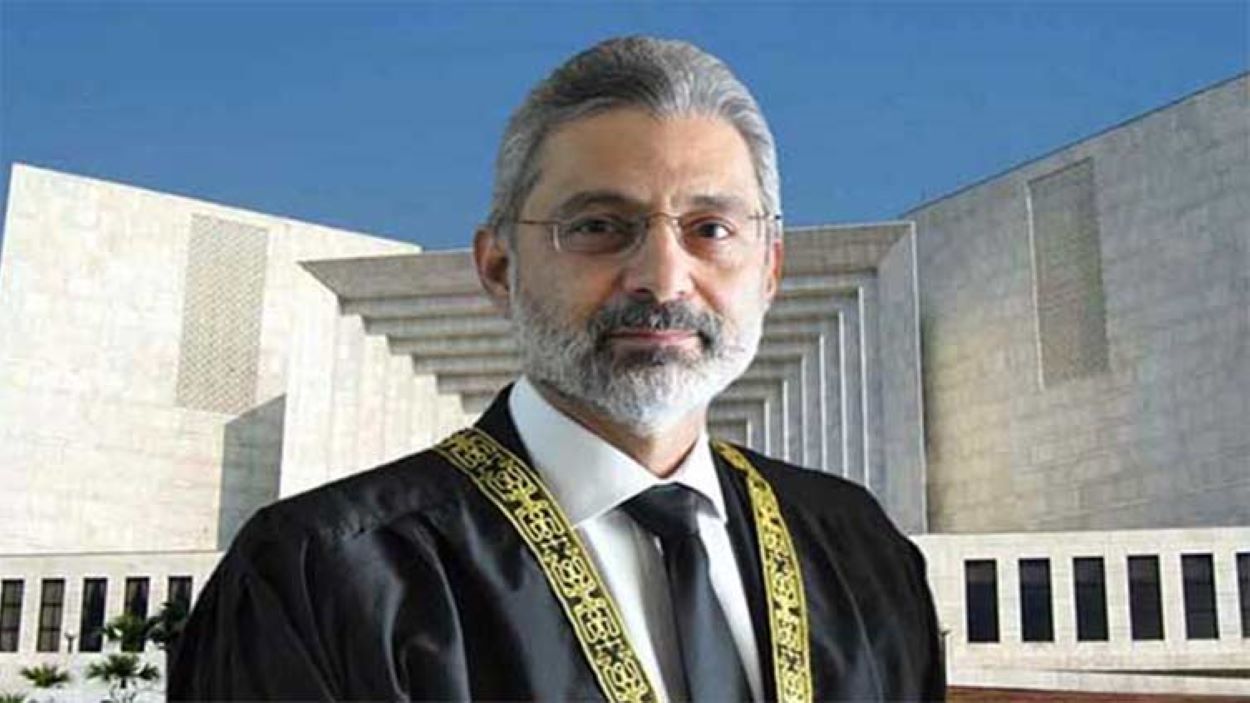The Chief Justice of Pakistan, Qazi Faez Isa, strongly criticised the Faizabad sit-in inquiry commission’s report. He labelled the findings “very disappointing” and expressed surprise at the report’s content.
The CJP’s remarks came as he presided over a three-member bench, which included Justices Irfan Saadat Khan and Naeem Akhtar Awan, to hear the federal government’s review petition.
The commission, tasked with probing the 2017 Faizabad sit-in led by former Tehreek-e-Labbaik Pakistan chief Khadim Hussain Rizvi, exonerated key military figures. The team, led by former Khyber Pakhtunkhwa Police officer Dr. Akhtar Ali Shah, recommended legal action based on the findings of the federal government and Punjab but failed to identify the direct facilitators of the sit-in.
During the hearing, Attorney General Mansoor Usman Awan presented the commission’s report, prompting Chief Justice Isa to criticize it for its inefficiency and lack of serious analysis. He noted that the report lacked clear findings and did not seriously address the accountability of those involved, particularly former spymaster Lt-Gen (retd) Faiz Hameed.
The Chief Justice also highlighted the absence of summonses for key figures from Tehreek-e-Laibbaik Pakistan, suggesting their input could have been valuable. He further questioned Gen (retd) Faiz’s repetitive exoneration within the report.
As the hearing progressed, former Pakistan Electronic Media Regulatory Authority chairman Absar Alam addressed his mention in the report, contradicting its findings regarding his interactions with Gen (retd) Faiz. Justice Isa criticized the commission for its selective acceptance of statements and its overall handling of evidence.
The court has not yet endorsed the commission’s report, and Justice Isa’s bench has allowed the commission members to defend their findings in writing or in person. The Attorney General has been granted two weeks to deliver the government’s response, and the court has requested further engagement from the government and the commission regarding the report’s public release and the court’s preliminary observations.






